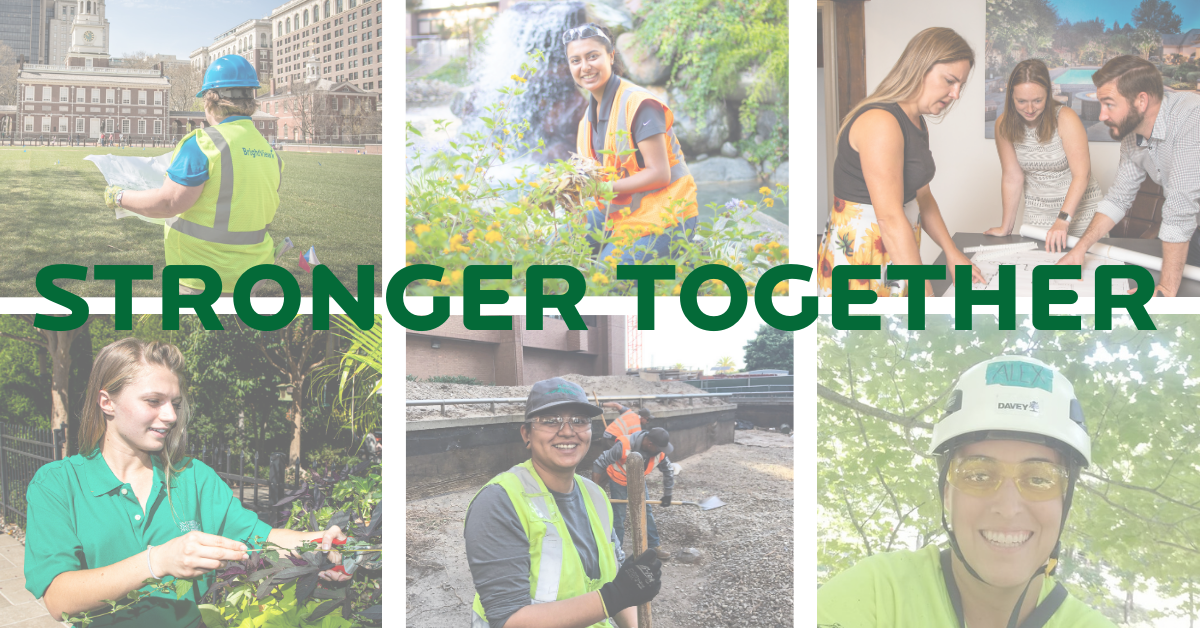
In the midst of Women’s History Month, we look at how some companies are supporting women in the industry
Women are finding an increasing number of opportunities in the lawn care and landscape industry. But in order to attract more women to the field — as well as retain the ones that are already here — it’s important that companies are making a concerted effort to support their success. It’s not just about hiring or promoting more women to check a box — but rather bringing diversity to your organization to make you stronger as a whole.

LandCare is among the companies making an effort to better support women in the industry. The launch of the Women’s Initiative Network (WIN) at LandCare is an employee resource group dedicated to providing women support and education to help them achieve their personal and professional goals. Jennifer Burnett, vice president of organizational development, is a member of the steering committee alongside Karen Wilkinson, Macey Wollenberg and Jennifer Dreyer that have been spearheading the effort with strong support from leadership. In fact, it was LandCare CEO Mike Bogan, LIC, who first proposed the idea of creating a platform where women were better supported.
“Before even getting started, we spent a tremendous amount of time researching what areas we needed to focus on and asking women who worked with us, ‘What do you need to get to the next level?’” explains Burnett. “A lot of what we heard was, ‘I want to get to the next level, but I don’t look like the person in that role.’ Not seeing more women in leadership was creating its own barrier.”
Burnett says WIN got started with a series of kickoff calls, inviting women to share what would help them propel their career in the right direction and achieve the goals they wanted to achieve. The first call had approximately 75 women participate. Now, they’re up to approximately 115 women participating in calls, which represents about 75 percent of the women at the company.
The effort has also included the development of a book club to more deeply invest in important topics. The first was focused on confidence — something that Burnett says her research showed can stand in the way of career growth.
Burnett says that one of the important things they’ve learned is that you “have to take one bite at a time.” Everything about WIN has been strategic and steady. The effort started with research about what women in the company need most — and will ultimately grow to focus on recruiting women, too. But Burnett says that focusing internally, first, was key.
She also says that you have to accept that you’ll learn as you go, at least to some degree. If nothing has ever been done like this in your company before, you’ll have to be prepared to “pivot as you learn.”
“One of the obstacles we ran into but never anticipated was that there were some women who were reticent about WIN because they didn’t want to feel singled out or feel as though they were being given an opportunity just because they were women,” Burnett says. “They wanted to know they earned it. I understood this sentiment fully. But I also needed to make it clear that WIN is about making sure women are considered for roles and supported in their roles because they’re the right person for the job.”
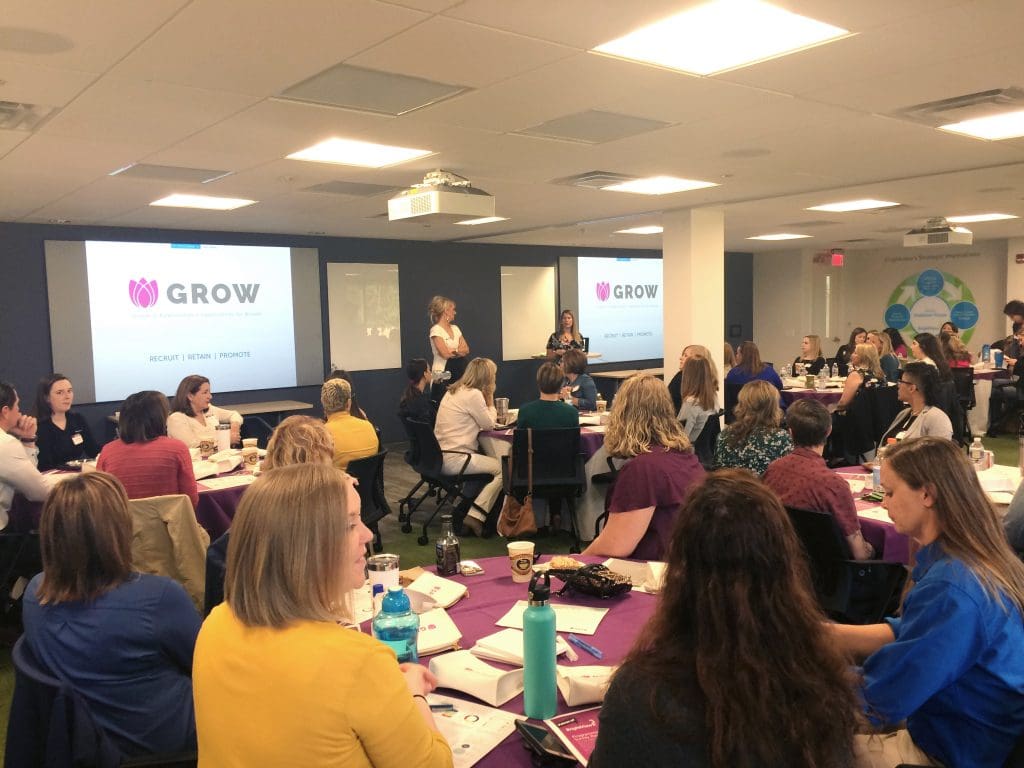
Like LandCare, BrightView Holdings, Inc., is another company with a strategic plan to support women. The company’s GROW initiative — which stands for Growth in Relationships + Opportunities for Women — has the mission to attract, promote, and retain women within the company. All 1,400 BrightView women are invited to participate in GROW.
“We started GROW to bring more professional development, networking and mentorship opportunities to the women of BrightView,” explains Caroline Weilert, BrightView’s vice president of marketing and brand management and the co-leader of GROW. “That has included a variety of programming and efforts — all, of course, made a little more challenging since the COVID-19 pandemic when we’ve had to switch from in-person events to virtual.”
Weilert says that part of the effort has included bringing in women with successful careers both in landscaping and outside of landscaping to share their inspiring stories and help our women chart their own careers.
“Since COVID-19, we’ve conducted webinars each month with relevant topics, ranging from burnout to work/life harmony and more,” she adds. “We also just launched a five-part series on Emotional Intelligence featuring a Harvard professor as the guest speaker.
Amanda Orders, BrightView’s Executive Vice President and Chief Human Resources Officer and GROW Executive Sponsor says that GROW is a huge focus area for the company — which is also investing largely in a diversity and inclusion platform as a whole. The company is in the process of hiring someone to lead this effort.
Orders says that the company also has training ensuring that this is part of the culture – as it’s important everyone is supportive and onboard.
“We want our people to understand that there is strength in diversity—not just in gender diversity, but across the board,” Orders adds.
Another pillar of the GROW initiative has been community service, so BrightView has built a partnership with Dress for Success, a global nonprofit organization that provides professional attire for low-income women who are re-entering the workforce following challenging life circumstances.
Recruiting More Women
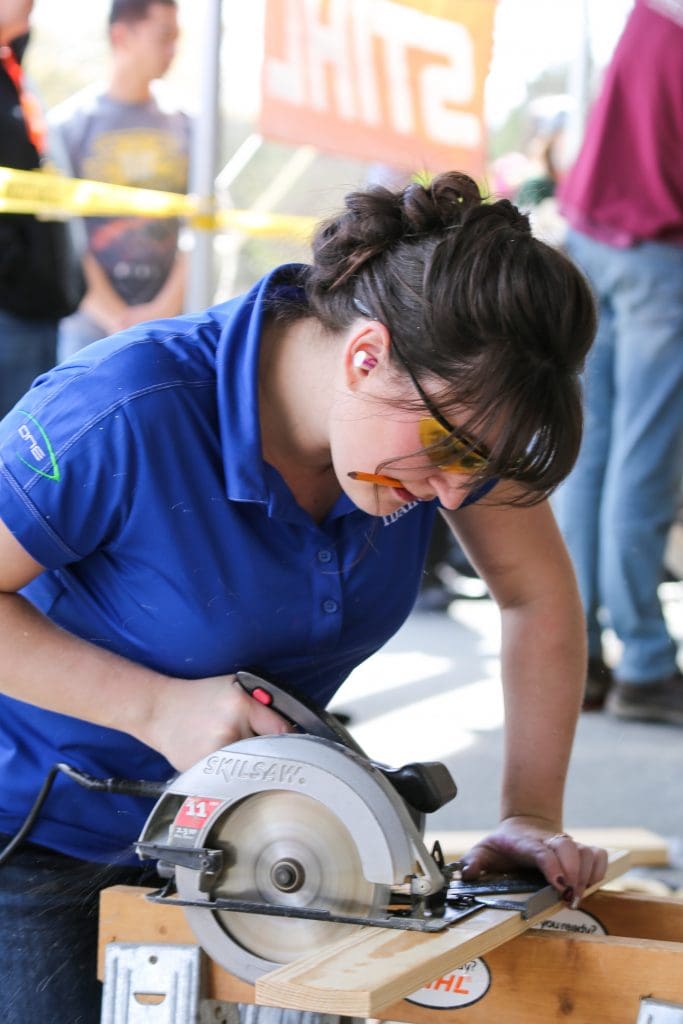
LandCare’s Burnett says that making sure women who were already employed by the company felt supported was a vital first step of WIN. But an area that they plan to address going forward is recruiting more women to the company.
“We have not formally attacked our recruiting effort, but we’ve seen a positive byproduct of working from within the company, first,” she explains. “I’ve heard from hiring managers that WIN has made LandCare more attractive in terms of recruiting. My advice to other companies who don’t know where to start would be to start from within. You can have this goal that you want to hire more women but if you aren’t prepared to support them in the roles they’re hired for — they aren’t going to stay.”
Orders says that the GROW initiative sends a message to potential hires that this is a company that truly cares about women — and that makes a difference in recruitment.
“I think if a potential hire looks at our website, they’ll see that we are slowly but surely expanding our female population,” she adds. “I think it’s okay to admit that’s a journey — we have more work to do. But we are committed to that work. The most important part of any journey is starting.”
At Level Green Landscaping in Upper Marlboro, Maryland, Michael Mayberry, chief technical officer, say that being intentional about showing women in company videos or photographs has been an important part of their recruiting effort. The company has women in various positions — from crews to managers — and making their images and stories more visible has been a goal.
“We’ve been more intentional about doing blog posts and videos where we highlight the women in our company,” says Mayberry. “I think there is sometimes this misperception that a woman’s career path in the industry has to start in design or working in the office but that’s not the case at all. We have women on the crews — we have a woman running one of our branches — so, highlighting women in all roles is important, not just for recruiting at our company but for our industry as a whole.”
Chad Diller, director of client success for Landscape Leadership, says that any landscape company interested in recruiting more women should always try to be “authentic first.” In other words, if you already have women in your company, find ways to feature them with employee profiles, photos, and videos on the company website and on social media. It’s something that Diller says that companies need to be “purposeful” about following through on.
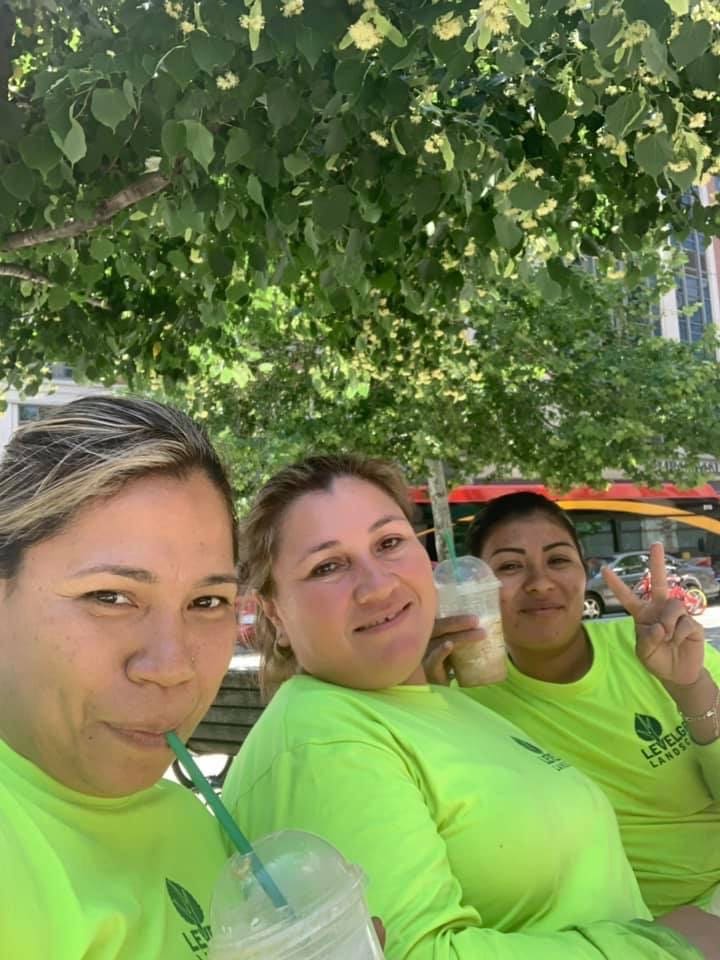
But he also knows that the reality is, a lot of landscape companies don’t have many women on staff. Everyone has to start somewhere.
“When you’re trying to be more diversified in hiring, it helps to show that diversity — but not everyone has it,” he says. “If you’re trying to be more intentional about diversifying your hiring, using models on your website that demonstrate the more diversified company you’d like to have may be part of that initiative.”
Diller says that recruiting is ultimately just “marketing for team members.” In the same way that your company might be skilled at going after different customers, you need to start thinking about going after the different team members you’d like to hire.
“That means being a bit more introspective about not only the images you portray but also the language you use to promote jobs,” Diller says. “Is the message that your company sending out one that is only going to bring in more males? If you haven’t hired a lot of women up until this point, you need to sit down and think about why. Are you doing anything to attract more diversity to the roles you have open?”
Diller says that men trying to figure out what women want out of their career or out of an opportunity with your company is probably not going to be terribly effective. Instead, he suggests going right to the source.
“If you already have women on your team, ask them what they love about their job and what initially attracted them to it,” he says. “And ask them what intimidated them or what’s held them back. That is a great place to start.”
Mayberry adds that it’s not enough to just show that there are women in the industry. Level Green wants to show that women can be successful in this industry.
“We want to do more than just show that we hire and employ women — we want to show them that women are moving up the career ladder here,” he says. “There are career growth opportunities if that’s what you’re interested in doing.”
Support from the Top — and from Men
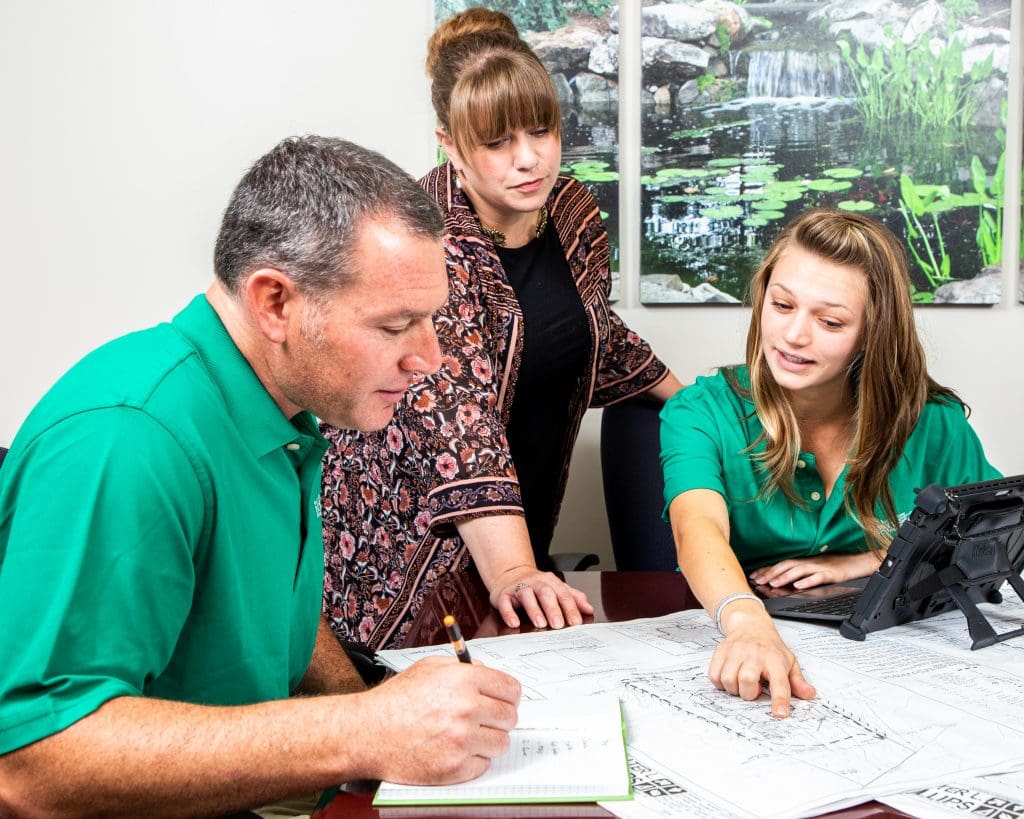
Although the lawn and landscaping industry remains male-dominated, women are finding more opportunities — as well as increasing support from the men in this industry.
“There is a large population of men here at BrightView that champion women,” adds Weilert. “We’re grateful for their support and thrilled that they get behind the GROW mission.”
From day one, BrightView’s President and Chief Executive Officer, Andrew Masterman, has been a huge proponent of GROW. And the truth is, without support from the top, it never could have gone as far, notes Orders and Weilert.
Burnett echoes similar sentiments and stresses that without support from leadership, WIN never could have been as successful as it has.
While initiatives like these might seem more doable at a large company, the truth is, there’s a place for everyone to start.
“Big or small, it’s about commitment,” says Weilert. “Smaller companies can absolutely invest in a program like GROW. It takes passionate individuals who want to diversify the industry and then commit to making that happen. While we are a national company, we also have GROW chapters at the regional level. Many branches curate their own programming and networking opportunities, which mirrors what smaller landscaping firms could absolutely take on to support their women.”
Orders agrees.
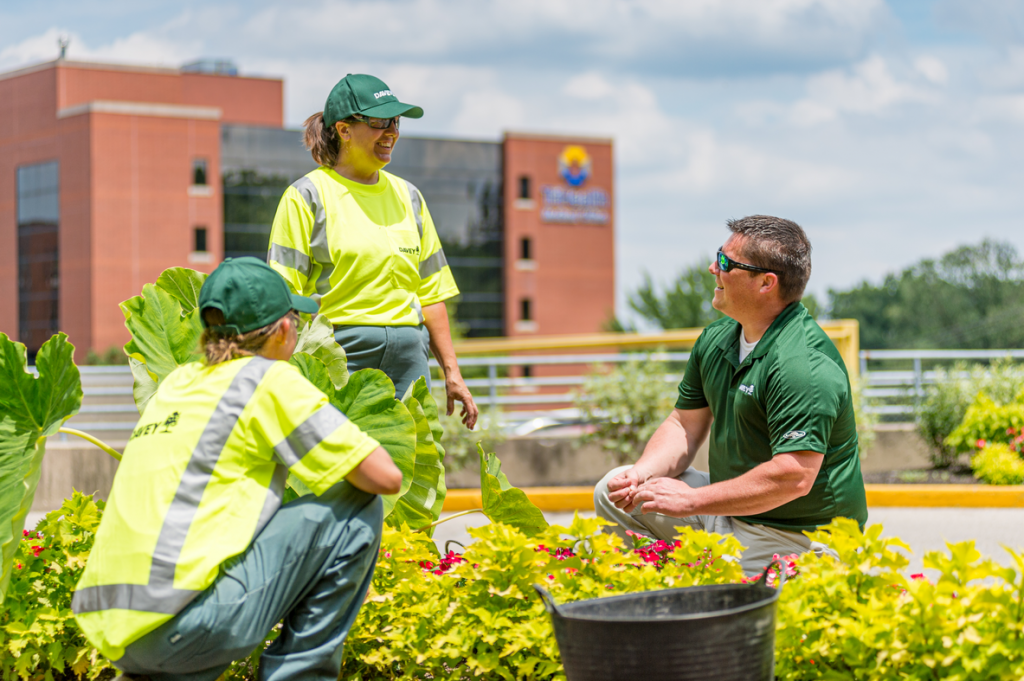
“One thing we say a lot is that we’re a local company with a national presence and that’s been very true of GROW,” says Orders. “No matter what size your organization is, you can do this. For us, connecting with current female employees and finding out about their challenges and what they need to see more of has been the best place to start. How are you tapping into the employees you already have? They are your greatest resource!”
While many companies might be looking at more ways to bring women on board, at the end of the day, it’s important that the mindset is in the ‘right place,’” adds Burnett.
“This shouldn’t just be about how can we recruit more women — it should be about how can we make this is a place where women truly want to work,” she says. “Being part of WIN has been beneficial for me and my own career growth and I’m really proud of it. There are four women on our steering committee, and we meet weekly and make all of the decisions together — which is also unique. How often in this industry are women the decision-makers on behalf of the entire company? I think it’s propelling us into the future where more women are in decision-making roles and integrated throughout our industry.”
This article was published in the March/April issue of the magazine.

